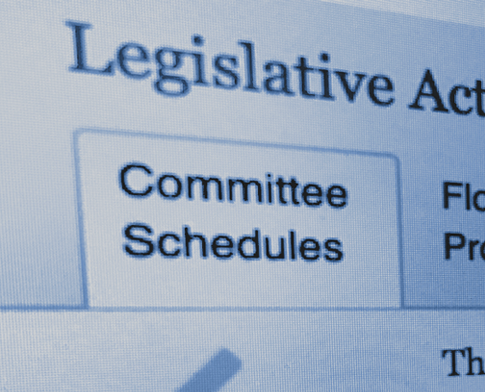Trade Update (August 5)
Talks with China Collapse, More Tariffs Looming
United States Trade Representative (USTR) Robert Lighthizer and Treasury Secretary Steve Mnuchin had hoped to inch the US and China closer toward a trade deal this when the pair had its first face-to-face talks since May. Those hopes seem temporarily dashed, as President Trump announced on Wednesday (July 31) that he’ll impose a 10 percent tariff on roughly $300 billion worth of Chinese imports that haven’t already been subjected to tariffs. The new tariffs would be effective on September 1 and will reportedly have a more direct impact on US consumers, as the goods target clothes, toys, cell phones, electronic, and other retail items. Industry groups voiced criticism of the president’s decision but leadership on Capitol Hill took a different tone. The tariff action appeared to draw praise from Senate Minority Leader Chuck Schumer, who has often criticized Trump’s transactional approach to the China trade talks.“We have to be really tough on China. They’ve taken advantage of us,” he said. “America has lost trillions of dollars and millions of jobs because China has not played fair. And being tough on China is the right way to be.” Senate Finance Chairman Chuck Grassley (R-IA) also offered a degree of support for Trump’s move while Finance Committee’s Ranking Member Ron Wyden (D-OR) was more critical, saying the new duties would raise costs for U.S. consumers “without any reason to think that it will make China stop stealing our technology, and undercutting American jobs.”[1] On Friday (Aug. 2), Chinese officials responded by stating they would not “give an inch” and threatened to retaliate if Trump imposes more tariffs. Both the foreign and commerce ministries said the U.S. would have to “bear all the consequences” and demanded more sincerity from Washington if negotiations were to continue following the president’s latest announcement, which caught many in Beijing off guard.[2] During a meeting with Trump and Lighthizer, Mnuchin recommended the US notify Beijing before announcing any new tariffs. Trump demurred, but with his permission Lighthizer later attempted to place a call to Chinese Vice Premier Liu He, who is the country’s lead trade negotiator. He didn’t answer. Acting Chief of Staff Mick Mulvaney talked through the market effects of increasing the China tariffs, the people said. Trump hit send on his tweets announcing the new tariffs at 1:26, while Mnuchin, Lighthizer, Mulvaney and others were still in the Oval Office.[3] But the list of American imports Beijing can counter-tariff is running out, due to its lopsided trade balance. Beijing is about to run out of American imports for retaliation due to their lopsided trade balance. China imported US goods worth about $160 billion last year, but regulators have extended retaliatory measures to include slowing down customs clearance for American companies and putting off issuing license in insurance and other fields.[4] Beijing also is threatening to release an “unreliable entities” blacklist of foreign companies that might face restrictions on doing business with China, similar to the US imposing restrictions on the Chinese tech-giant Huawei. The negotiations fared better earlier in the week. China agreed to buy more agricultural goods from the US. The next round of talks will take place in September, after the proposed tariffs take effect.
US, Japan Trade Deal
The US and Japan agreed to accelerate trade talks, said Japan’s Economy Minister Toshimitsu Motegi after talks with his US counterpart on Thursday (Aug 1). “There is no doubt that talks are moving along. We have not completely agreed at the moment, so we will deepen our talks.” U.S. President Donald Trump has repeatedly said he is unhappy with Japan’s trade surplus with the United States, much of it from auto exports, and wants a bilateral deal to fix it. Trump has pressured Tokyo to accelerate talks for a bilateral trade deal that would open up Japan’s protected agriculture markets, such as beef and rice.[5] Motegi added on Friday (Aug 2) that talks between the two countries are making progress but it’s unclear if a deal can be reached by late September when Japanese Prime Minister Shinzo Abe and Trump are expected to meet on the sidelines of the United Nations (UN) General Assembly meeting.
USMCA Latest
Union officials are working with the Trump administration to fix their concerns with the new North American trade deal, but significant work is still left, a top liaison to the labor sector said Tuesday. “We remain optimistic about the ability to resolve the issues,” Michael Wessel, a staff liaison for the United Steelworkers union to the Office of the USTR’s Labor Advisory Committee, said during a Senate Finance hearing on the USMCA.“But we will not hesitate to oppose an agreement that fails to improve NAFTA and the current trade template in meaningful ways,” said Wessel, who added that he was testifying before the committee on behalf of organized labor.[6] Senate Finance Chairman Chuck Grassley (R-IA) advised President Trump to tread lightly in his efforts to pressure House Speaker Nancy Pelosi (D-CA) to move forward with the trade deal. “It’s very necessary that the president hold his patience, because nothing’s going to happen if Pelosi doesn’t want it to happen,” Grassley said, referring to the United States-Mexico-Canada Agreement (USMCA). House Ways and Means Chairman Richard Neal (D-MA) said he expects his panel to take up the deal in September or October. Congressional Democrats continue to seek changes to certain aspects of USMCA, including enforcement, environment, labor, and pharmaceuticals before approving it. In the past, Grassley has threatened to set aside the deal if Trump follows through on certain tariff increases and successfully pressured the administration to strike a deal that lowered steel and aluminum tariffs on Mexico. He also cautioned the White House about the pace in which it’s attempting to complete the trade deal. “So somebody there in the White House that doesn’t have common sense better not push the president to do something erratic,” Grassley said.
References
[1] Behsudi, Adam. Palmer, Doug. “Trump says he’ll hit China with new tariffs.” Politico. 1 Aug 2019. https://www.politico.com/story/2019/08/01/trump-china-tariffs-1444426
[2] Mai, Jun. Wu, Wendy. “China ‘won’t give an inch’ after Trump threatens more tariffs for failing to make sufficient concessions to US.” South China Morning Post. 2 Aug 2019. https://subscriber.politicopro.com/article/2019/08/china-wont-give-an-inch-after-trump-threatens-more-tariffs-for-failing-to-make-sufficient-concessions-to-us-1632331
[3] Jacobs, Jennifer. Leonard, Jenny. Donnan, Shawn. Mohsin, Saleha. “Trump resisted Mnuchin’s proposal to warn China of new tariffs. Bloomberg. 1 Aug 2019. https://www.bloomberg.com/news/articles/2019-08-01/trump-ruled-out-mnuchin-proposal-to-warn-china-of-new-tariffs
[4] McDonald, Joe. “China threaten retaliation for Trump’s planned tariff hike.” The Associated Press. 2 Aug 2019. https://www.apnews.com/bb149842a3d04f29a784824edd15db72?utm_medium=AP&utm_campaign=SocialFlow&utm_source=Twitter
[5] Lawder, David. “Japan, US agreed to speed up trade talks aimed at bilateral deal.” Reuters. 1 Aug 2019. https://www.reuters.com/article/us-japan-usa-trade/japan-us-agreed-to-speed-up-trade-talks-aimed-at-bilateral-deal-idUSKCN1UR5YJ
[6] Cassella, Megan. “Labor representative: ‘Much work remains’ to resolve issues in USMCA.” Politico Pro. 30 Jul 2019. https://subscriber.politicopro.com/article/2019/07/labor-representative-much-work-remains-to-resolve-issues-in-usmca-1627127
HOUSE.GOV
The Week Ahead
For the main events of the next week and more, go straight to the key events on the house.gov website.
SENATE.GOV
The Week Ahead
For the main events of the next week and more, go straight to the key events on the senate.gov website.


